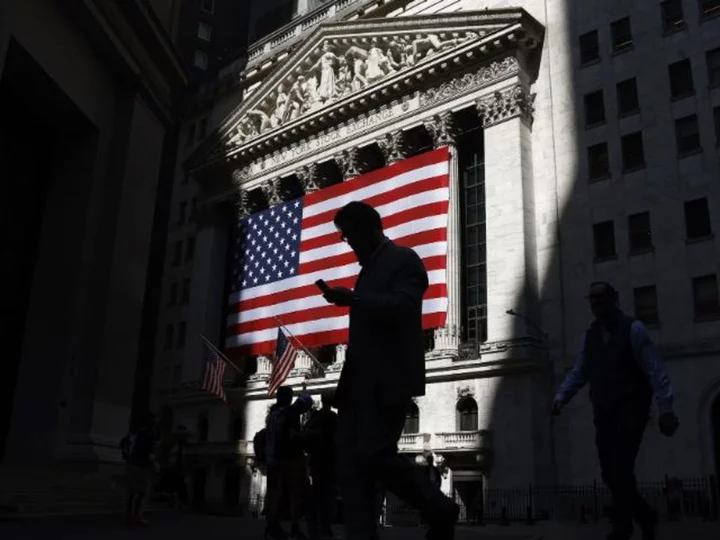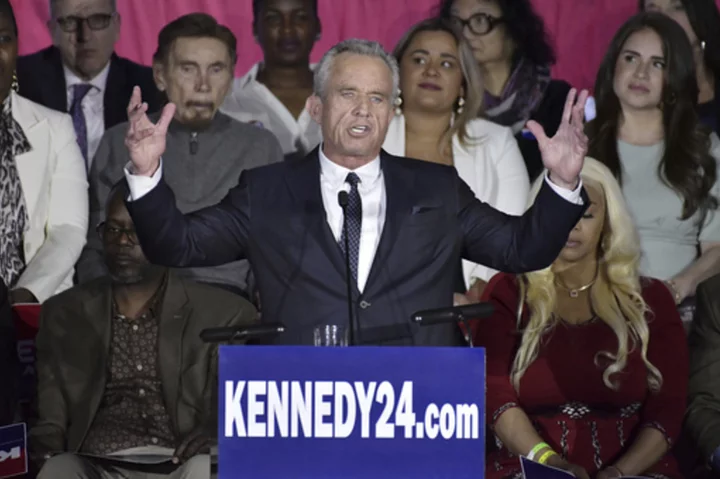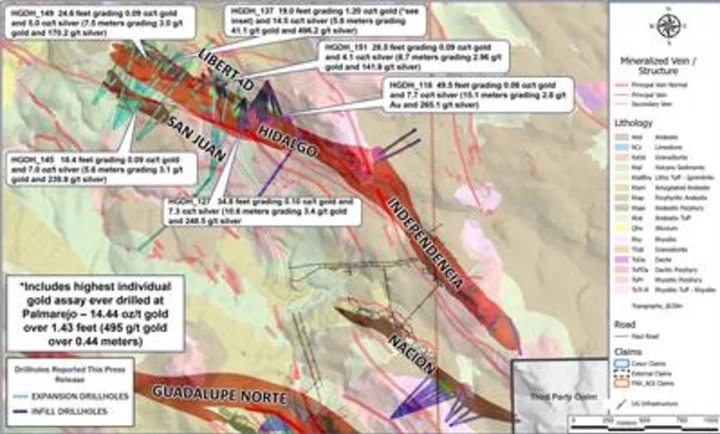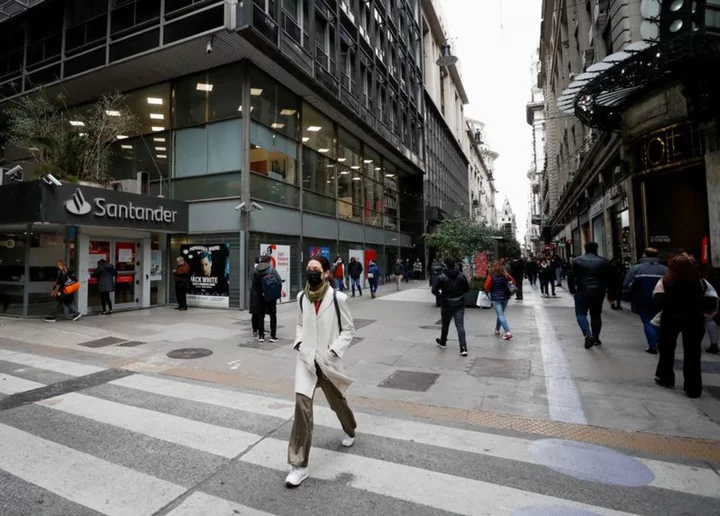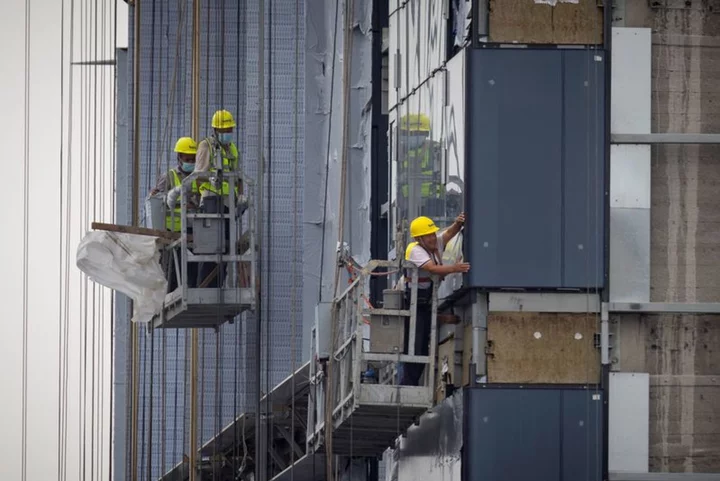Economists, investors and the Federal Reserve have sounded alarm bells for months that a recession could come later this year. But a growing chorus of experts believe a downturn might not happen until early next year.
Here are some of those recent calls:
Bank of America CEO Brian Moynihan told CNN on Tuesday that he believes the US economy could tip into a recession early next year, rather than this year like he originally predicted.Vanguard economists wrote in their mid-year outlook that they see a high probability of recession, and the "odds have risen that it could be delayed from 2023 to 2024."JPMorgan Chase economists said in a note last week that there could be a "synchronized global downturn sometime in 2024."
Delaying recession predictions isn't anything new. Investors and economists last year predicted that the US could enter a recession in early 2023, after the Fed set out on its aggressive interest rate hiking campaign to tame inflation. As the economy proved more resilient than expected, and the US has avoided recession so far, the case for a 2023 recession has been crumbling. Bets have accordingly started to move further out.
"We're kicking the recession can down the road," said David Grecsek, managing director in investment strategy and research at wealth management firm Aspiriant. "You have to recognize that boy, we keep kicking this can — doesn't it just mean that we're not going to have a recession?"
Part of the reason why it's so hard to pinpoint when exactly a recession could begin is because there's a lag between the Fed's rate hikes and when they start to impact the economy.
Fed Chair Jerome Powell told Congress earlier this month that the Fed's rate hikes will take "a year and change" to make their way through the economy. Since it's been over a year since the Fed began its rate hiking cycle last March, that in theory means that rate hikes could fully take hold soon.
If the economy remains strong through the third quarter, a recession might not even happen, says Grecsek.
However, "we're still far from that at this point," he said.
What do markets suggest about recession odds? It depends where you look.
The stock market, which entered bull market territory just a few weeks ago, has shown little sign this year that the economy could be headed for a downturn.
Small-cap stocks, which are domestic economic bellwethers because of their exposure to financial companies and largely US revenue sources, have joined the narrow rally in recent weeks. The Russell 2000 index, which tracks the performance of small-caps, is up 6.8% for the year.
That suggests that investors' risk appetites are growing, since market breadth is widening even as mega-cap stocks continue to dominate the rally.
Another positive sign: The S&P 500 index's consumer discretionary sector is up over 30% for the year, propped up by strong economic data that suggests Americans are continuing to spend robustly.
And money-market funds saw outflows for the week ended June 14 for the first time since April, according to the Investment Company Institute. Outflows continued the following week.
That's another sign that Wall Street is starting to feel better about the economy, because it suggests investors are taking cash from classically safe money market funds and starting to put it to work in the stock market, says Brian Mulberry, client portfolio manager at Zacks Investment Management.
Still, the bond market tells a different story: The New York Federal Reserve's recession probability model calculates the probability that the US will enter a recession in the next 12 months by tracking the spread of 3-month and 10-year Treasury yields. The model shows a roughly 71% probability that the economy will tip into a recession by May 2024. That's the highest reading since 1982.
The two-year and 10-year Treasury yield curves also remain inverted, a phenomenon that has preceded all 10 US recessions since 1955, according to the Federal Reserve Bank of San Francisco.
So, what does all this mean? There's no consensus on Wall Street about what the economy's future holds, says Tim Courtney, chief investment officer at Exencial Wealth Advisors.
That's because the last few years have been unique for markets and the economy due to the pandemic, ensuing federal stimulus spending and the Fed's aggressive clip of interest rate hikes, according to Courtney. Combined with mixed data that paints a cloudy picture of the economy's health, investors are left undecided on what's ahead.
"There's no historical precedent that we can point to," he said. "I don't think the markets really know what to expect."
Climate event El Niño threatens US economic growth
El Niño, a climate event that refers to the phenomenon of warmer surface waters in the central and eastern Pacific Ocean, could affect more than just the weather this year.
US National Oceanic and Atmospheric Administration (NOAA) scientists confirmed earlier this month that El Niño has emerged and is likely to be strong this time around.
That could create a concerning headwind for the US economy's growth, reports my colleague Samantha Delouya.
El Niño can create conditions that lead to more typhoons and cyclones in the Pacific, abnormal weather patterns even beyond the Pacific Ocean and extreme weather that can result in natural disasters such as flooding, wildfires and hurricanes.
In addition to the toll that could take on people's lives and livelihoods, El Niño also represents a threat to the US economy. Americans could have to start paying up — even more than they already have in the past two years -- for food.
The airline industry, which has benefited from a travel boom for the past couple of years, could see increased flight delays and cancellations due to inclement weather.
Read more here.
Up Next
Monday: June ISM manufacturing PMI. US stock market closes early at 1 p.m. ET due to July Fourth holiday.
Tuesday: US stock market closed for July Fourth.
Wednesday: FOMC June meeting minutes.
Thursday: June services PMI, May Job Openings and Labor Turnover Survey and jobless claims.
Friday: May jobs report.

